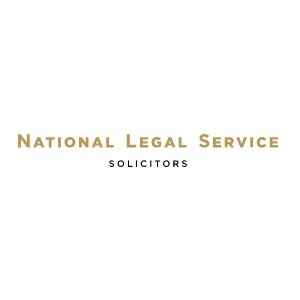Best Drunk Driving Lawyers in London
Share your needs with us, get contacted by law firms.
Free. Takes 2 min.
List of the best lawyers in London, United Kingdom
About Drunk Driving Law in London, United Kingdom
Drunk driving, also known as Driving Under the Influence (DUI) or Driving Whilst Intoxicated (DWI), is taken very seriously in London and the broader United Kingdom. The law is governed by the Road Traffic Act 1988 and the Crime and Disorder Act 1998. These laws outline that it is illegal to operate a motor vehicle if your blood alcohol concentration is above the legal limit of 80 milligrams of alcohol per 100 millilitres of blood.
Why You May Need a Lawyer
When charged with DUI/DWI, the penalties can be severe, including heavy fines, driving disqualifications, and even jail sentences. To navigate this labyrinth of complex legislation and potentially mitigate the consequences, you likely require the expertise of a lawyer. You might need a lawyer if you wish to challenge the accuracy of the breathalyser, if there are discrepancies in how the police handled your case, or if this is not your first offence.
Local Laws Overview
The UK does not have a standardized 'drunk driving' law; instead, it uses a variety of offences to charge drivers. The main offences are 'being in charge of a vehicle while alcohol level above limit', 'driving or attempting to drive while above the legal limit or unfit through drink', and 'refusing to provide a specimen of breath, blood or urine for analysis'. The penalties depend heavily on the actual offence - it may range from 3 months to 14 years of imprisonment and fines from £2,500 to an unlimited amount.
Frequently Asked Questions
1. What are the legal alcohol limits in the UK?
The legal limit of alcohol concentration in the UK is 35 micrograms per 100 millilitres of breath, 80 milligrams of alcohol in 100 millilitres of blood or 107 milligrams of alcohol per 100 millilitres of urine.
2. Can I refuse a breathalyser test?
Refusing to take a breathalyser test is a serious offence, and you can be arrested for it. This comes under the 'failing to provide a specimen for analysis' offence and carries a minimum 12-month driving disqualification and a maximum fine up to £5,000.
3. What if this is my first offence?
Even if this is your first offence, the penalties can still be severe. It can include a minimum 12 month driving ban, an unlimited fine, and up to 6 months imprisonment.
4. How long does a conviction stay on my record?
A drink driving conviction typically stays on your license for 11 years from the date of conviction. However, the conviction may remain on your criminal record indefinitely due to the rehabilitation of offenders act.
5. Can I get legal aid for drunk driving offence?
In many cases, legal aid is available for these offences, but it often depends on the complexity of the case and your financial situation. A legal advisor or solicitor can provide you with more specific information.
Additional Resources
Organisations like 'Drinkaware' provide information about safer alcohol consumption. The 'Motorists' Legal Challenge Fund' also provides resources regarding legal assistance. Government websites such as 'GOV.UK' and the 'Crown Prosecution Service' provide thorough explanations of the laws and penalties related to drunk driving.
Next Steps
If you are in need of legal assistance concerning a drunk driving charge, the first step is to seek legal counsel. This might involve approaching a solicitor who specializes in traffic or criminal laws, who can guide you through the process and help you understand your options. Remember, it is crucial to act fast as swift action could potentially make a significant difference to the outcome of your case.
Lawzana helps you find the best lawyers and law firms in London through a curated and pre-screened list of qualified legal professionals. Our platform offers rankings and detailed profiles of attorneys and law firms, allowing you to compare based on practice areas, including Drunk Driving, experience, and client feedback.
Each profile includes a description of the firm's areas of practice, client reviews, team members and partners, year of establishment, spoken languages, office locations, contact information, social media presence, and any published articles or resources. Most firms on our platform speak English and are experienced in both local and international legal matters.
Get a quote from top-rated law firms in London, United Kingdom — quickly, securely, and without unnecessary hassle.
Disclaimer:
The information provided on this page is for general informational purposes only and does not constitute legal advice. While we strive to ensure the accuracy and relevance of the content, legal information may change over time, and interpretations of the law can vary. You should always consult with a qualified legal professional for advice specific to your situation.
We disclaim all liability for actions taken or not taken based on the content of this page. If you believe any information is incorrect or outdated, please contact us, and we will review and update it where appropriate.















